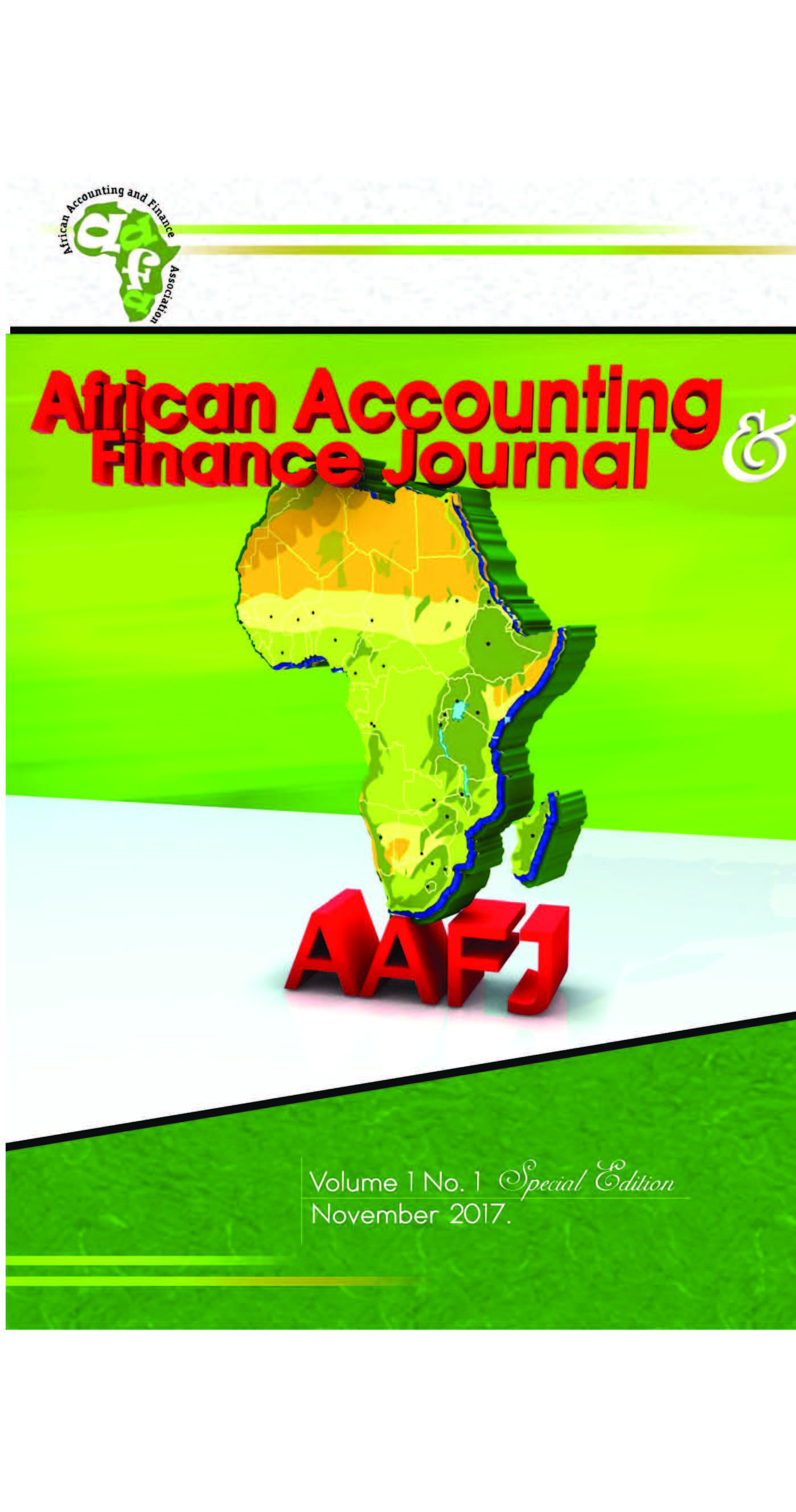The Economic Consequences of Environmental, Social and Governance Disclosures by Firms Quoted on the Nairobi Securities Exchange
DOI:
https://doi.org/10.26686/aafj.v1i1.9715Keywords:
Environmental, social and governance disclosures, panel regression, information environment, stock liquidity, KenyaAbstract
Purpose: Given the growing interest on alternative reporting framework incorporating non- financial information in annual reports, we empirically examine the economic consequences of disclosure of environmental, social and governance (ESG) information. The economic consequences examined include stock liquidity and firm value.
Design/methodology/approach: Data are gathered from a sample comprising 246 firm-year observations of 50 listed companies in Kenya over the period 2011-2015. Two-stage panel least squares regressions are performed to establish the economic consequences of ESG disclosure. The ESG disclosures are manually scored from the audited annual reports using a disclosure index with 58 items.
Findings: We provide some empirical evidence that ESG disclosures are positively associated with stock liquidity (measured using bid-ask spreads) and firm value (measured using Tobin’s Q). This is consistent with the view that ESG disclosures improve an investor’s information environment hence improving stock liquidity.
Practical implications: The findings should be of interest to managers, policy makers and advocates of ESG or integrated disclosures. This is because the findings suggest positive capital market economic consequences of ESG disclosure.
Originality/value: The study contributes to the sparse literature on the economic consequences of alternative disclosure frameworks, which are not oriented purely towards financial reporting.
Downloads
Downloads
Published
Issue
Section
License
Papers and contributions become the legal copyright of African Accounting and Finance Association unless otherwise agreed



